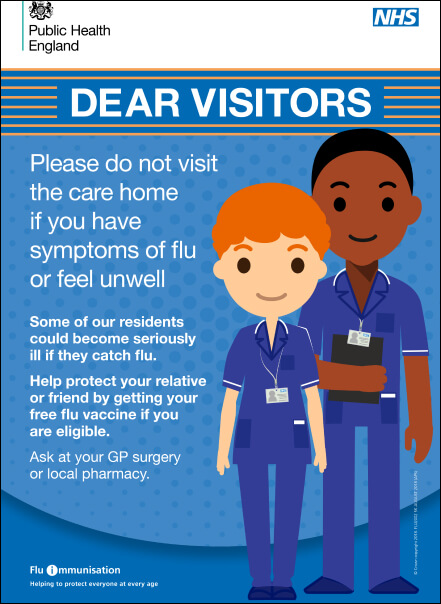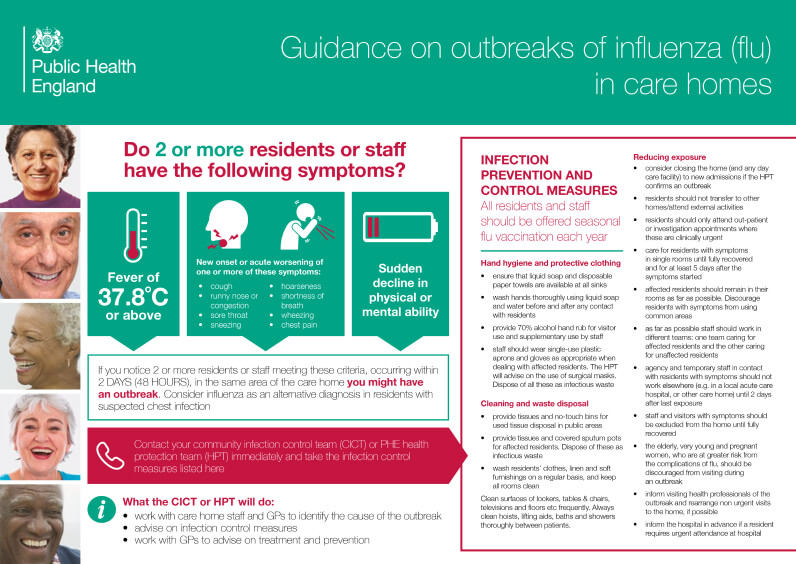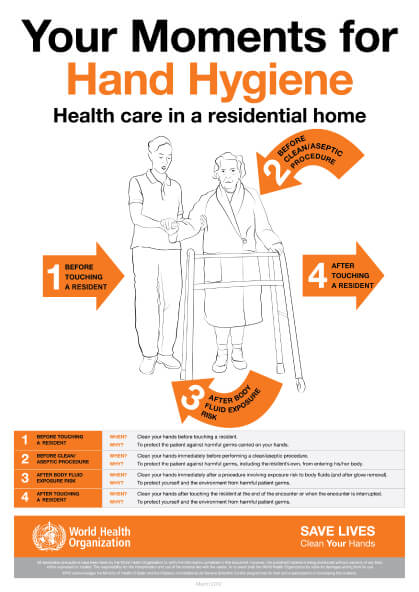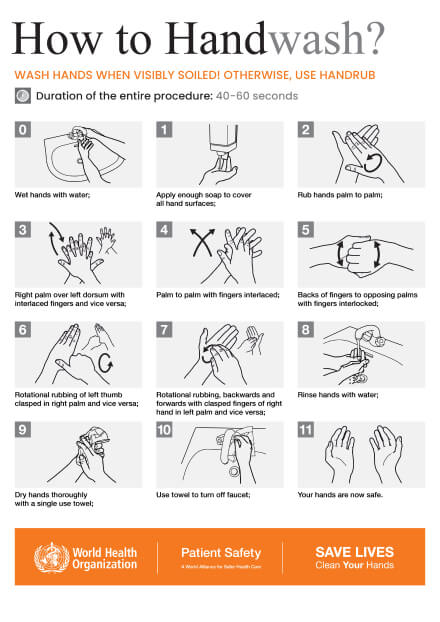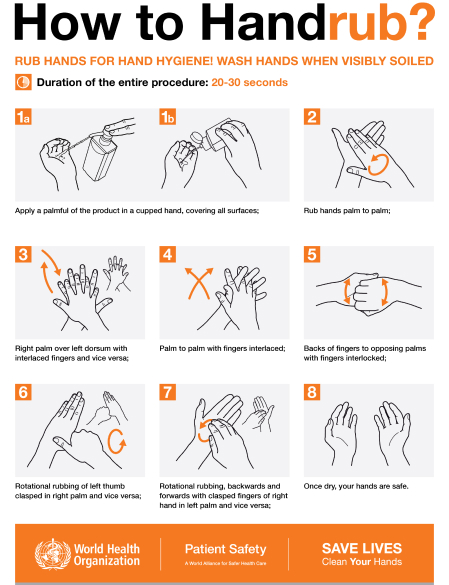
Care Homes Support
Good infection prevention and control practices are essential to ensure that people accessing health and social care services receive safe and effective care. Infections in care homes may be serious. They may worsen underlying medical conditions and affect recovery. Infections may be caused by organisms resistant to antibiotics which can be more difficult to treat.
The Health and Social Care Act 2008 states that all registered providers must provide adequate infection prevention and control arrangements. This will ensure residents are cared for in a safe and clean environment where the risks of healthcare associated infections are minimised. In Sandwell MBC there is a specialist service to help Care Homes manage infection prevention.
Community Infection Prevention Team
We provide specialist infection prevention and control advice (IPC) support to the Care Homes in Sandwell.

Linda Farley
Infection Prevention Nurse Specialist
Phone

Vanessa Pluck
Infection Prevention Control Audit Nurse
Phone
We are responsible for the local infection prevention and control programme within care home. This involves identifying
- The risks to the patients and staff from infection
- Support for implementing and monitoring actions to manage those risks.
The team will
- Conduct regular audit to ensure that the policies have been adhered to.
- Help with action plans and re-audit.
- Provide advice on environment infection prevention
Training and Education
- Assist with training needs assessment for staff
- Practical hand hygiene training for staff
Significant Events
- Support with outbreaks of infectious conditions
Monday to Friday – 9am – 4pm
Please contact us via email health_protection@sandwell.gov.uk
National Guidance
Information resources for care home workers about preventing and controlling infection in care homes. These can help Care Home staff develop good infection prevention practices within the Care Homes.
Here are links to some of the national documents for infection prevention.
Health and Social Care Act 2008: code of practice on the prevention and control of infections This document sets out the code of practice (the code) on the prevention and control of infections under the Health and Social Care Act 2008 (H&SCA 2008). This act sets out the overall framework for the regulation of health and adult social care activities by the Care Quality Commission (CQC).
Care homes: infection prevention and control
Information resource for care home workers about preventing and controlling infection in care homes.“ A document to assist staff to take all reasonable steps to protect residents and staff from acquiring infections and prevent cross infection.
Infection prevention and control: resource for adult social care This resource should be used as a guide in the practice of adult social care, to ensure people receive person-centred support that follows effective IPC measures.
Care Quality Commission
The Care Quality Commission is an executive non-departmental public body of the Department of Health and Social Care of the United Kingdom. It was established in 2009 to regulate and inspect health and social care providers in England. The link below is for the CQC guidance for Care Homes on the infection prevention standards. This will help Care Home Managers prepare for CQC inspections.
Adult social care:information for providers
National infection prevention and control manual (NIPCM) for England
This is an evidence-based practice manual for use by all those involved in care provision in England. It should be adopted as mandatory guidance in NHS settings or settings where NHS services are delivered, and the principles should be applied in all care settings. This manual was developed to ensure standardization of practices across the country. Contents include:
- Standard infection control precautions (SICP) are to be used by all staff, in all care settings, always, and for all patients whether infection is known to be present or not, to ensure the safety of those being cared for, staff and visitors in the care environment.
Hand hygiene
Hand hygiene is the single most important thing we can do to prevent the spread of infection.
Audit Tool
hands poster
Outbreaks
The symptoms can appear very quickly and include:
- Headache
- Fever
- Cough
- Sore throat
- Aching muscles
- Joints
There are 2 types of influenza affecting people:
- influenza A
- influenza B
Further information can be found on the NHS website
Complications include bacterial pneumonia, and can be life threatening especially in:
- older people
- Those with certain underlying health conditions
Flu vaccination
Flu vaccination is safe and effective. It’s offered every year through the NHS to help protect people at risk of getting seriously ill from flu.
Visit the NHS website to find out more about the flu vaccination for adults
Frontline health workers
Frontline health and social care workers will usually get the flu vaccine through their employer.
If you cannot get a flu vaccine through your employer, you can get it at a pharmacy or your GP surgery if you’re employed:
- by a registered residential care or nursing home
- by a registered domiciliary care provider
You can have the flu vaccine at the same time as other vaccines such as the COVID-19 vaccine
How to get the flu vaccine
If you’re eligible for an NHS flu vaccine, you can:
- Contact your GP surgery to book an appointment
- Find a pharmacy that offers NHS flu vaccination (if you're aged 18 or over)
- Book a flu vaccination appointment online or in the NHS App(if you're aged 18 or over) – from 15 December 2023, you will not be able to book a flu vaccination appointment using this service
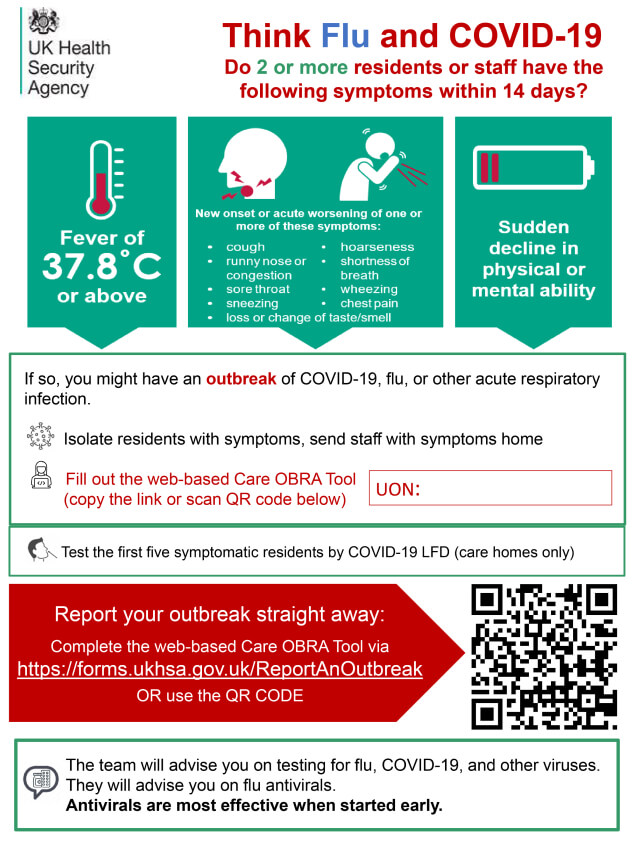
You can have the flu vaccine at the same time as other vaccines such as the COVID-19 vaccine
Care Outbreak Risk Assessment (Care OBRA) Tool:
This is an online Care Outbreak Risk Assessment (Care OBRA) Tool for all Adult Social Care providers reporting a single case of Influenza (Flu) or a suspected or confirmed outbreak of acute respiratory infections, defined as:
Two or more cases of Acute Respiratory Infection (COVID-19, Flu or unknown infection) within 14 days and potentially linked to the same care setting i.e. Cases are probably linked to each other and transmission in the care setting is likely.
Use this link to notify outbreaks of Acute Respiratory Infections to UKHSA
There is some guidance to help Care Homes to ensure outbreaks of infection are dealt with appropriately and effectively. Following these measures will ILI – Managing Outbreaks in Care Homes
COVID-19
Most people infected with the virus will experience mild to moderate respiratory illness and recover without requiring special treatment. However, some will become seriously ill and require medical attention. Older people and those with underlying medical conditions like cardiovascular disease, diabetes, chronic respiratory disease, or cancer are more likely to develop serious illness. Anyone can get sick with COVID-19 and become seriously ill or die at any age.
Find out more on the World Health Organization website:
This is an online Care Outbreak Risk Assessment (Care OBRA) Tool for all Adult Social Care providers reporting a single case of Influenza (Flu) or a suspected or confirmed outbreak of acute respiratory infections, defined as:
Two or more cases of Acute Respiratory Infection (COVID-19, Flu or unknown infection) within 14 days and potentially linked to the same care setting i.e. Cases are probably linked to each other and transmission in the care setting is likely.
Use this link to notify outbreaks of Acute Respiratory Infections to UKHSA
Coronavirus guidance can be found in the following link
It is very important that all staff receive their vaccination. This will help prevent outbreaks within our care homes and prevent more serious disease.
Frontline healthcare workers are eligible for a free COVID vaccination.
Please see the following link to book an appointment to receive your vaccination
Should staff work with symptoms of Respiratory Infections
The following link provides advice to Care Home Managers on allowing staff to work
Guidance for managing healthcare staff with symptoms of a respiratory infection including coronavirus (COVID-19), or a positive test result for COVID-19
Infection prevention and control in adult social care: COVID-19 supplement
Sets out how to reduce COVID in adult social care settings
This guidance outlines COVID-19 infection prevention and control (IPC) measures for staff, service users and visitors in adult social care settings and services in England. This guidance should be read by adult social care providers, managers of social care services, adult social care staff, and by service users and visitors where relevant.
It is essential that all care workers receive training in donning and doffing personal protective clothing. This link will help to ensure staff complete this procedure properly
This guidance outlines the procedure for non-aerosol generating procedures
Posters
